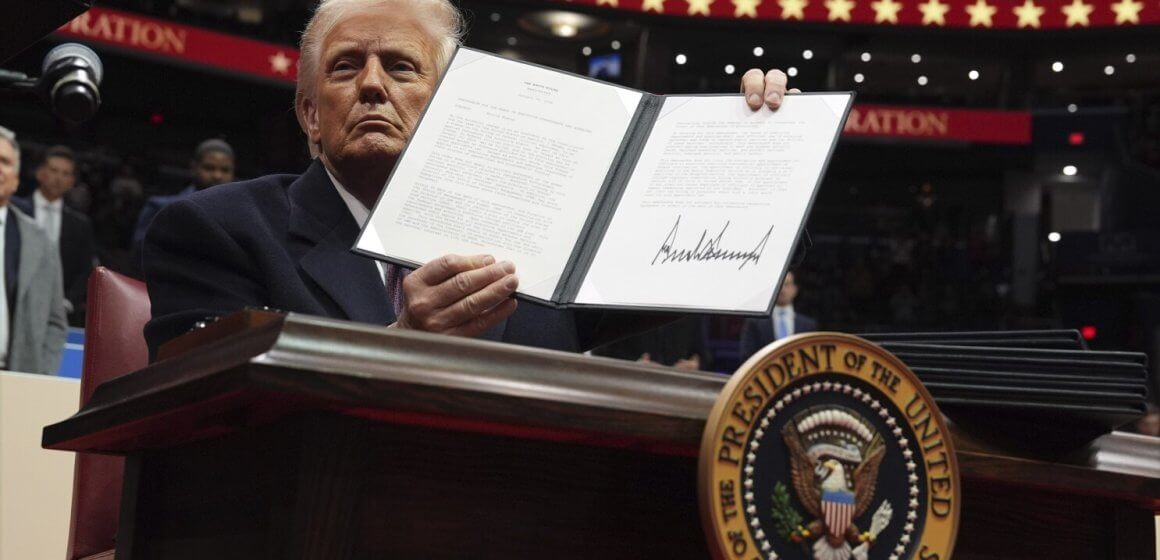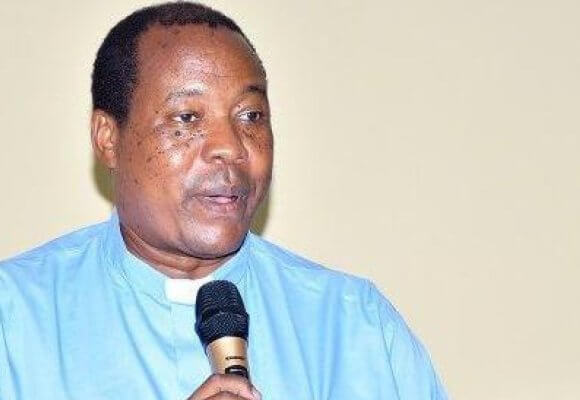|
LISTEN TO THIS THE AFRICANA VOICE ARTICLE NOW
Getting your Trinity Audio player ready...
|
A federal judge in Seattle issued a temporary restraining order on Thursday, January 23, 2025, blocking President Donald Trump’s controversial executive order aimed at curtailing automatic birthright citizenship in the United States. The order, signed by Trump earlier in the week, marked one of the first actions of his second term in office and sparked immediate legal challenges from multiple states and civil rights groups.
The executive order sought to deny U.S. citizenship to children born on American soil if neither of their parents were U.S. citizens or lawful permanent residents. Critics, including legal experts and Democratic state officials, argued that the measure blatantly violated the U.S. Constitution’s 14th Amendment, which guarantees citizenship to anyone born in the United States.
U.S. District Judge John Coughenour, a Reagan appointee with over four decades on the bench, called the order “blatantly unconstitutional” during a hearing attended by a packed courtroom. “I cannot recall a case where the constitutional question was as clear as this one,” Coughenour stated, delivering a sharp rebuke to the Trump administration.
The legal challenge was spearheaded by four Democratic-led states—Washington, Arizona, Illinois, and Oregon—who argued that the order threatened to undermine fundamental rights and disrupt the lives of thousands. Washington Attorney General Nick Brown emphasized the far-reaching implications of the order, stating, “You are an American citizen if you were born on American soil—period. Nothing the president does can change that.”
The temporary restraining order halts enforcement of the policy for 14 days, during which Judge Coughenour will decide whether to issue a longer-lasting preliminary injunction. A hearing for that decision is scheduled for February 6.
Under the blocked policy, children born in the U.S. after February 19, 2025, would have faced severe restrictions, including ineligibility for Social Security numbers, government benefits, and legal employment as they grew older. Assistant Attorney General Lane Polozola, representing Washington state, highlighted the immediate harm, stating, “Babies born today wouldn’t count as U.S. citizens under this order.”
The Trump administration defended the executive order as a necessary step to address what it described as a broken immigration system and ongoing challenges at the southern border. Justice Department lawyer Brett Shumate called the judge’s decision to block the order “wildly inappropriate” and vowed to fight it in court. “We look forward to presenting a full merits argument to the court and to the American people, who are desperate to see our nation’s laws enforced,” a Justice Department spokesperson said.
This legal setback marks one of the earliest challenges to Trump’s renewed hardline immigration agenda. During his first term, Trump frequently targeted the 14th Amendment’s citizenship clause, though efforts to reinterpret it were largely unsuccessful. Legal scholars and historians have pointed out that the clause was cemented in U.S. law over a century ago. In 1898, the U.S. Supreme Court affirmed that children born on American soil to non-citizen parents were entitled to citizenship, a ruling that remains a cornerstone of constitutional law.
The 14th Amendment itself, ratified in 1868 during the Reconstruction era, was designed to overturn the infamous Dred Scott decision of 1857, which had denied citizenship to enslaved Black people and their descendants. Advocates for birthright citizenship argue that this constitutional safeguard reflects the U.S. commitment to equality and inclusivity.
Since the executive order’s signing, at least six lawsuits have been filed challenging its legality, including by civil rights groups and attorneys general from 22 states. Democratic officials estimate that more than 150,000 children annually could be denied citizenship if the order were upheld.
Meanwhile, Republican lawmakers allied with Trump have introduced legislation in the U.S. House of Representatives to codify restrictions on birthright citizenship. Although such measures face significant legal and political hurdles, the proposed legislation underscores the intensifying debate over immigration and citizenship in the United States.











LEAVE A COMMENT
You must be logged in to post a comment.